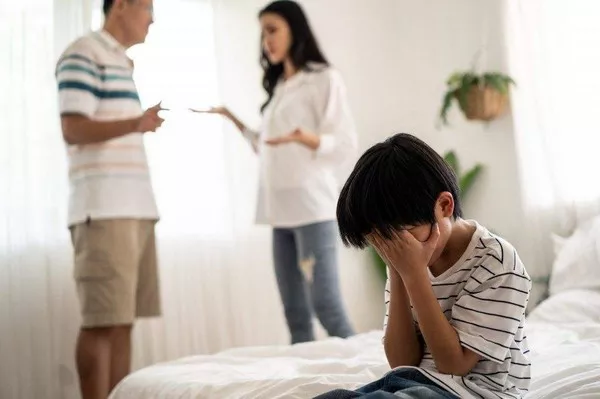Social anxiety, often referred to as social phobia, is a common and challenging mental health condition that can significantly impact an individual’s life. It is characterized by an intense fear of social situations and interactions, leading to avoidance, distress, and impaired functioning. While there may not be a single “cure” for social anxiety, there are numerous effective strategies and treatments available to manage and alleviate its symptoms.
Understanding Social Anxiety
Defining Social Anxiety
Social anxiety disorder, commonly known as social anxiety, is a mental health condition characterized by an excessive and irrational fear of social situations and interactions. Individuals with social anxiety often experience intense anxiety and fear of being judged, criticized, or embarrassed in social settings. This fear can be so overwhelming that it leads to avoidance of social situations altogether.
Impact of Social Anxiety
Social anxiety can have a profound impact on various aspects of an individual’s life. It can hinder the development of personal relationships, affect academic and professional performance, and lead to isolation and loneliness. The fear and avoidance associated with social anxiety can limit opportunities for social and professional growth, preventing individuals from reaching their full potential.
The Cure for Social Anxiety: Evidence-Based Approaches
Cognitive-Behavioral Therapy (CBT)
Cognitive-Behavioral Therapy is considered one of the most effective treatments for social anxiety. CBT focuses on identifying and challenging negative thought patterns and behaviors associated with social anxiety. Through cognitive restructuring and exposure therapy, individuals learn to reframe their thoughts, confront their fears gradually, and develop effective coping strategies.
Exposure Therapy
Exposure therapy is a core component of CBT and is particularly effective in treating social anxiety. It involves gradually exposing individuals to feared social situations in a controlled and systematic manner. Over time, exposure helps individuals desensitize to their fears and build confidence in handling social interactions.
Medication
In some cases, medication may be prescribed to manage the symptoms of social anxiety. Selective serotonin reuptake inhibitors (SSRIs) and serotonin-norepinephrine reuptake inhibitors (SNRIs) are commonly used antidepressants that can help alleviate the symptoms of social anxiety. However, medication is typically used in conjunction with psychotherapy for the most comprehensive treatment approach.
Mindfulness and Relaxation Techniques
Mindfulness practices, such as meditation and deep breathing exercises, can be valuable tools for managing social anxiety. These techniques help individuals stay grounded in the present moment, reduce feelings of anxiety, and promote relaxation. Regular practice can improve emotional regulation and reduce the physical symptoms of anxiety.
Social Skills Training
Social skills training is a structured approach to improving social interactions. It involves learning and practicing specific social skills, such as effective communication, active listening, and assertiveness. This training can help individuals build confidence and feel more at ease in social situations.
Support Groups
Participating in support groups for social anxiety can provide individuals with a sense of community and understanding. Sharing experiences and strategies with others who have similar challenges can be comforting and empowering. Support groups offer a safe space to practice social skills and gain support from peers.
Self-Help Resources
Numerous self-help resources, including books, online courses, and mobile apps, are available to individuals seeking to manage their social anxiety independently. These resources often include cognitive-behavioral techniques, relaxation exercises, and tips for overcoming social anxiety in everyday life.
Lifestyle Modifications
Adopting a healthy lifestyle can complement other treatment approaches for social anxiety. Regular physical activity, a balanced diet, and adequate sleep can improve overall well-being and reduce stress. Limiting caffeine and alcohol intake can also help manage anxiety symptoms.
Professional Guidance
Seeking help from mental health professionals, such as psychologists, psychiatrists, or licensed therapists, is crucial in the treatment of social anxiety. These professionals can provide personalized assessment, diagnosis, and evidence-based treatment plans tailored to the individual’s specific needs.
Ongoing Maintenance
It’s important to recognize that managing social anxiety is an ongoing process. Even after significant improvement, individuals may still experience occasional anxiety or fear in social situations. Continuously practicing the learned strategies and seeking support when needed can help maintain progress and prevent relapse.
Conclusion
While there may not be a single “cure” for social anxiety, there are numerous evidence-based approaches and strategies that can effectively manage and alleviate its symptoms. Cognitive-Behavioral Therapy, exposure therapy, medication, mindfulness practices, and social skills training are just some of the valuable tools available to individuals seeking relief from social anxiety. It’s important to remember that treatment should be personalized, and what works best for one person may differ from what works best for another. Seeking professional guidance and support is a crucial step in managing social anxiety and regaining control over one’s life. With the right strategies and treatment, individuals can learn to navigate social situations with greater ease and enjoy a fuller, more fulfilling life.
Related topics:



























